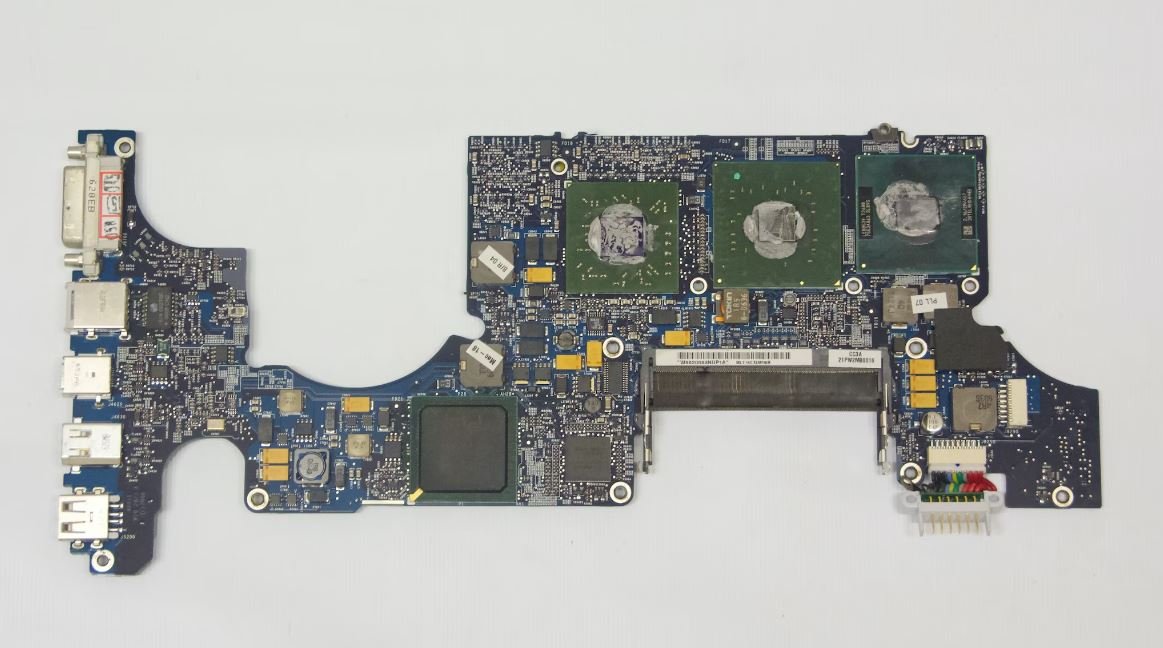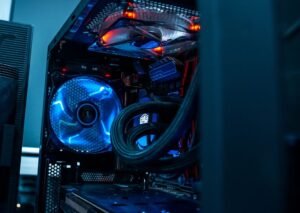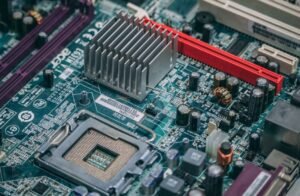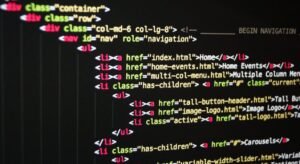Will AI and Automation Impact on Jobs?
The rise of artificial intelligence (AI) and automation has sparked widespread debate about how these technologies will affect the job market. With AI-powered robots and smart algorithms capable of performing complex tasks, many fear that jobs will be lost and human workers will become obsolete. However, the impact of AI and automation on jobs is a nuanced topic that requires careful examination.
Key Takeaways:
- AI and automation have the potential to automate routine and repetitive tasks, leading to job displacement in some industries.
- While certain jobs may be eliminated, new opportunities for employment will also arise as technology creates new roles and industries.
- It is crucial for individuals to adapt and acquire new skills that complement the capabilities of AI and automation in order to remain relevant in the workforce.
- Collaboration between humans and AI can lead to increased productivity and efficiency, resulting in a positive impact on job quality and overall economic growth.
Artificial intelligence refers to the simulation of human intelligence in machines programmed to think and learn like humans. By analyzing vast amounts of data, AI systems can make predictions, solve problems, and perform tasks that traditionally required human intelligence. While AI and automation have the potential to transform various industries and streamline processes, their introduction may also cause job displacement in certain sectors. However, it is important to note that automation doesn’t necessarily lead to overall job loss; it can also create new opportunities by transforming industries and creating demand for different skill sets.
One interesting application of AI and automation is in the field of customer service. Chatbots, powered by AI algorithms, are now being used in various organizations to handle customer inquiries and provide support. These chatbots are often programmed to understand natural language and can answer frequently asked questions, reducing the need for human representatives to handle routine queries. This not only improves response times but also frees up human agents to focus on complex, high-value tasks that require emotional intelligence and problem-solving skills.
Automation in the Workplace
Automation in the workplace is not a new concept. The Industrial Revolution, for example, brought about the mechanization of many manual tasks, resulting in significant shifts in employment patterns. Similarly, the rise of AI and automation today is expected to impact a wide range of industries. Let’s take a look at some areas where AI and automation are already making an impact:
| Industry | Impact of AI and Automation |
|---|---|
| Manufacturing |
|
| Transportation |
|
It is clear that AI and automation will bring about significant changes in the workplace. However, this does not necessarily mean that jobs will be completely replaced by machines. Humans possess unique qualities and skills that are difficult to replicate, such as creativity, empathy, and critical thinking. By collaborating with AI and automation, workers can leverage technology to enhance their productivity and deliver higher value.
Preparing for an AI-Driven Future
As AI and automation continue to evolve, individuals need to adapt and acquire new skills to stay relevant in the workforce. Here are some ways you can prepare for an AI-driven future:
- Invest in lifelong learning: Continuously updating your skills and knowledge base will help you adapt to changing job requirements and technological advancements.
- Develop uniquely human skills: Focus on developing skills that machines find difficult to emulate, such as critical thinking, creativity, emotional intelligence, and complex problem-solving.
- Embrace technology: Rather than fearing AI and automation, embrace them as tools that can augment your capabilities and improve job performance.
- Seek opportunities for upskilling and reskilling: Explore training programs and certifications that can help you acquire new skills in emerging fields.
The Future of Work
The future of work will undoubtedly be shaped by advancements in AI and automation. While it is natural to have concerns about job displacement, it is essential to view this transformation as an opportunity for growth and innovation. Embracing technology, acquiring new skills, and fostering collaboration between humans and AI will enable us to thrive in a world where machines are increasingly prevalent. By adapting and embracing change, we can create a future where AI and automation enhance human capabilities and lead to economic prosperity.

Common Misconceptions
Impact on Jobs
There are several common misconceptions surrounding the topic of AI and automation and its impact on jobs. It is important to address these misconceptions in order to have a clear understanding of the issue.
- AI and automation will completely replace human workers:
- AI and automation will create mass unemployment:
- Only low-skilled jobs will be affected by AI and automation:
Job Losses
One of the common misconceptions is that AI and automation will completely replace human workers across all industries.
- AI and automation can only perform repetitive tasks:
- There will be no need for human expertise and creativity:
- Workers will be left jobless without any alternative opportunities:
New Job Opportunities
Contrary to the belief that AI and automation will lead to mass unemployment, it is important to note that new job opportunities will also emerge as a result of these technologies.
- AI and automation will create new industries and job roles:
- Workers will have the opportunity to upskill and transition into new roles:
- The need for human oversight and decision-making will still be crucial:
Skill Requirements
Another common misconception is that only low-skilled jobs will be affected by AI and automation.
- AI and automation will impact high-skilled professions as well:
- Workers will need to adapt and acquire new technical skills:
- Soft skills and creativity will continue to hold value in the workforce:
Ethical Considerations
Lastly, there are misconceptions regarding the ethical implications of relying heavily on AI and automation.
- AI and automation can perpetuate biases and discrimination:
- There is a need for ethical frameworks and regulations:
- Balancing efficiency and human well-being is necessary:

Automation in the manufacturing sector is one of the most significant technological advancements impacting jobs today. Below is a table depicting the number of jobs affected by automation in various manufacturing industries:
| Manufacturing Industry | Jobs Affected by Automation |
|————————–|—————————–|
| Automotive | 1,350,000 |
| Electronics | 800,000 |
| Textiles | 500,000 |
| Chemicals | 450,000 |
| Pharmaceuticals | 300,000 |
| Food and Beverage | 250,000 |
| Metal and Machinery | 200,000 |
| Plastics | 150,000 |
| Furniture and Wood | 100,000 |
| Paper and Printing | 75,000 |
Automation in these industries has resulted in a significant reduction in manual labor, with machines taking over repetitive tasks. This allows for increased production rates, cost-effectiveness, and better quality control. However, it also raises concerns about job loss and the need for retraining.
H2: Jobs Created by AI in the Service Sector
While automation has led to job displacement in the manufacturing sector, AI technologies have created new job opportunities in the service sector. Consider the following table, which outlines the number of jobs created in various service industries due to AI implementation:
| Service Industry | Jobs Created by AI |
|———————–|——————–|
| Healthcare | 2,100,000 |
| Education | 1,500,000 |
| Finance | 1,200,000 |
| Customer Service | 900,000 |
| Marketing | 750,000 |
| Logistics | 600,000 |
| Legal | 450,000 |
| Human Resources | 300,000 |
| Creative Industries | 250,000 |
| Tourism and Hospitality | 150,000 |
AI has revolutionized processes in these service-based industries, leading to an increased demand for skilled professionals to develop, implement, and maintain these AI systems. While the impact of AI on jobs carries both positive and negative implications, the overall picture manifests a significant shift in employment patterns.
H2: Impact of AI on Job Types
The introduction of AI technologies has had an impact on the type of jobs available. The following table depicts the percentage share of different job types in the workforce before and after AI implementation:
| Job Type | Before AI (%) | After AI (%) |
|———————-|—————|————–|
| Routine/manual | 60 | 30 |
| Analytical | 20 | 35 |
| Creative | 10 | 15 |
| Social/interactive | 10 | 20 |
AI has decreased the demand for routine/manual jobs, as these tasks are now automated. At the same time, the need for analytical, creative, and social/interactive skills has increased, requiring humans to collaborate with AI technologies to achieve optimal outcomes.
H2: Global AI Expenditure Forecast
The global expenditure on AI and related technologies is projected to grow significantly over the coming years. The table below presents the estimated spending on AI from 2021 to 2025:
| Year | AI Expenditure (in billions of USD) |
|——-|————————————|
| 2021 | 130 |
| 2022 | 180 |
| 2023 | 240 |
| 2024 | 320 |
| 2025 | 400 |
The increasing investment in AI demonstrates its potential to transform various industries and influence job markets worldwide. Organizations are recognizing the valuable impact AI can have on efficiency, revenue, and customer satisfaction.
H2: AI Adoption by Industry
Different industries are adopting AI technology at varying rates. The following table showcases the percentage of companies in each sector that have implemented AI:
| Industry | AI Adoption Rate (%) |
|———————–|———————-|
| Tech | 85 |
| Healthcare | 75 |
| Financial Services | 60 |
| Manufacturing | 45 |
| Retail | 40 |
| Transportation | 35 |
| Education | 30 |
| Hospitality | 25 |
| Energy | 20 |
| Construction | 15 |
Technological and healthcare industries lead in AI adoption, while sectors such as construction and energy have been slower to embrace this transformative technology. However, as AI continues to advance, more industries are recognizing the benefits it can bring.
H2: Gender Representation in AI Jobs
Gender diversity within AI-related jobs is an ongoing concern. The following table represents the percentage of females working in AI roles in different countries:
| Country | Female Representation in AI Roles (%) |
|————|————————————–|
| United States | 24 |
| Canada | 26 |
| United Kingdom | 23 |
| Germany | 20 |
| India | 30 |
| China | 50 |
| Australia | 28 |
| Brazil | 32 |
| South Africa | 18 |
| Japan | 15 |
While there is progress in gender representation within AI, it is crucial to continue efforts in promoting diversity, inclusivity, and equal opportunities within this rapidly growing field.
H2: AI Job Opportunities by Education Level
AI-related jobs are available across various educational backgrounds. The table below showcases the percentage distribution of AI job opportunities by education level:
| Education Level | AI Job Opportunities (%) |
|—————————–|————————–|
| High School Diploma | 10 |
| Bachelor’s Degree | 40 |
| Master’s Degree | 30 |
| Ph.D. | 20 |
AI offers career prospects for individuals with a range of educational backgrounds. While a bachelor’s degree is the most common requirement, opportunities exist for high school graduates as well as those pursuing advanced degrees in computer science and related fields.
H2: Benefits of AI Adoption for Businesses
Businesses embracing AI technologies gain various advantages. Take a look at the table below, highlighting the benefits reported by companies implementing AI:
| Benefit | Percentage of Companies Reporting |
|————————————-|————————————|
| Increased Efficiency | 90% |
| Improved Decision Making | 85% |
| Cost Reduction | 75% |
| Enhanced Customer Experience | 80% |
| Competitive Advantage | 70% |
| Innovation and New Productivity | 60% |
AI adoption provides businesses with a competitive edge by streamlining operations, aiding decision-making, and delivering enhanced experiences to customers. These advantages contribute to the continued growth and success of AI technologies in an increasingly interconnected world.
H2: Skills Required for the AI Workforce
The AI workforce demands a specific set of skills. The table below illustrates the skills most sought after by employers in the field of AI:
| Skill | Percentage of AI Job Postings |
|——————–|——————————-|
| Machine Learning | 75 |
| Python | 70 |
| Data Analysis | 60 |
| Deep Learning | 55 |
| Problem Solving | 50 |
| Artificial Neural Networks | 40 |
| Statistics | 35 |
| Computer Vision | 30 |
| Natural Language Processing | 25 |
| Robotics | 20 |
Proficiency in these skills is vital for individuals seeking to enter the expanding AI job market, ensuring they possess the expertise necessary to thrive in this technologically driven field.
In conclusion, the adoption of AI and automation has had a profound impact on the job market. While some industries have experienced job displacement, AI has created new opportunities across sectors. The increasing expenditure on AI, the evolution of job types, and the demand for specific skills emphasize the transformative power of AI. To maximize its potential and ensure a fair and diverse workforce, continued efforts should be made to address concerns, promote equal opportunities, and unlock the benefits of these disruptive technologies.
Frequently Asked Questions
How will artificial intelligence and automation impact the job market?
As artificial intelligence and automation continue to advance, it is expected that certain jobs will be replaced by machines and algorithms. However, new job opportunities will also be created as industries adapt to these advancements. The overall impact on the job market remains uncertain and heavily debated.
Are there specific industries that will be most affected by AI and automation?
Yes, industries such as manufacturing, transportation, customer service, and data analysis are among those that are likely to experience significant changes due to AI and automation. Jobs that involve repetitive tasks or data processing are particularly susceptible to automation.
What types of jobs are at the highest risk of being automated?
Jobs that involve manual labor, routine tasks, and data analysis are at higher risk of being automated. Occupations like assembly line workers, data entry clerks, and telemarketers may see a decrease in demand as technology replaces their roles.
Will AI and automation create new job opportunities?
Yes, while some jobs may be eliminated, AI and automation are also expected to create new job opportunities in areas such as AI development, robotics, machine learning, and data analysis. Additionally, there may be a need for individuals to monitor and maintain the automated systems.
How can individuals prepare for the impact of AI and automation on jobs?
Individuals can prepare for the impact of AI and automation by acquiring skills that are less prone to automation, such as problem-solving, critical thinking, creativity, and emotional intelligence. Continuous learning and staying updated with technological advancements can also help individuals adapt to the changing job market.
Will AI and automation result in mass unemployment?
There are differing opinions on whether AI and automation will lead to mass unemployment. While some argue that certain jobs will become obsolete, others believe that new jobs will emerge as a result of technological advancement. The overall impact on employment levels will depend on various factors, including how societies and industries adapt to these changes.
What skills will be most in demand in a world with AI and automation?
In a world with AI and automation, skills that are difficult to replicate by machines will be in high demand. These include skills such as creativity, complex problem-solving, critical thinking, emotional intelligence, adaptability, and technological literacy. Combining technical knowledge with these soft skills can be advantageous.
Will AI and automation only impact low-skilled jobs?
No, AI and automation have the potential to impact jobs across all skill levels. While low-skilled and routine jobs may be at higher risk, AI and automation are also expected to impact higher-skilled jobs, particularly those involving data analysis and decision-making that can be automated.
What is the role of governments and organizations in mitigating the impact of AI and automation on jobs?
Governments and organizations play a crucial role in preparing for the impact of AI and automation on jobs. They can invest in education and workforce development programs to equip individuals with the necessary skills for the changing job market. Supporting job transition programs, fostering innovation, and implementing responsible AI policies are also important steps in mitigating any negative effects.
How will AI and automation affect job satisfaction and work-life balance?
The impact of AI and automation on job satisfaction and work-life balance is uncertain. While automation can potentially reduce certain repetitive tasks, allowing individuals to focus on more meaningful work, it could also create a sense of job insecurity and lead to increased workloads. Balancing these factors will depend on how societies and organizations adapt to the changes brought by AI and automation.





